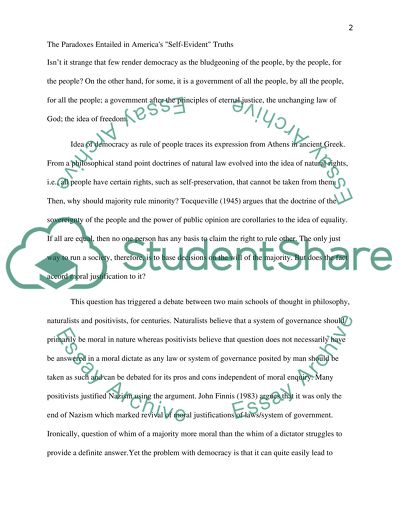Cite this document
(“The Paradoxes Entailed in America's Self-Evident Truths Essay”, n.d.)
Retrieved from https://studentshare.org/philosophy/1432114-the-paradoxes-entailed-in-america-s-self-evident
Retrieved from https://studentshare.org/philosophy/1432114-the-paradoxes-entailed-in-america-s-self-evident
(The Paradoxes Entailed in America'S Self-Evident Truths Essay)
https://studentshare.org/philosophy/1432114-the-paradoxes-entailed-in-america-s-self-evident.
https://studentshare.org/philosophy/1432114-the-paradoxes-entailed-in-america-s-self-evident.
“The Paradoxes Entailed in America'S Self-Evident Truths Essay”, n.d. https://studentshare.org/philosophy/1432114-the-paradoxes-entailed-in-america-s-self-evident.


